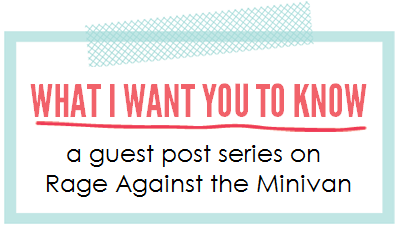From the moment those pink lines appeared on the pregnancy test, I’ve been haunted by this accusation. But never more so than when my child’s body and emotions spiral out of control in a panic attack, or sink her into a listless haze of exhaustion. It hit hard and it hit fast about a month ago.
She’s terrified by the big feelings, the lack of control and what this means for her future… wondering if she’ll ever be normal again. She turns to me to make it better. I hate that I can’t. I ruthlessly conceal my own fears from her.
She has trouble eating and sleeping; her body hurts all over and her muscles won’t stop twitching. She can’t stop crying some days. Her thinking is clouded and making the simplest decisions takes effort. She can’t make it through an entire day of school without falling apart. She, who was once my most independent child, now needs us to stay home, close by, and know where we are at all times. She sleeps in bed with me several times a week, while my husband takes the couch.
I wish I could say that I am always calm and selfless. Too often I simply go through the motions, hoping she won’t sense how tired and overwhelmed and, sadly – resentful, I feel. There’s a small, ugly part of myself that is frustrated with ‘one more thing’ on my plate. And stomps its feet about sharing a bed and coming home early from date night.
It’s equal parts heartbreaking and tedious, with no end in sight.
We deal with a lot of difficulty in our family (adoption and special needs and cancer), but this rates pretty high on the scale of nightmares. Probably because we feel so helpless and confused. There’s no single path to recovery, not in all the piles of brochures and books and websites that have been sent our way. We’ve consulted with the proper authorities: doctor, psychologist, school counsellor, social worker and even the local mental health organization.
We will try almost anything. Deep breathing and prayer and vitamins and meditation and exercise and counselling and yes, medication.
The family and friends we talk to all have strong opinions and personal experiences, and who are we to discount these? We have our own to add to the pile. But we can’t do all the things. And inevitably I wonder if we’re choosing right.
I say we, because that makes me feel better, but ultimately: this is her battle. And that is the hardest part of all. Standing on the sidelines while your child wrestles an invisible foe. One that attacks her thoughts and suffocates her joy. One that makes her feel weak and ashamed, when she is actually stronger than she’s ever been.
I hope that this will be a footnote in her life, an ‘I-remember-that-time-in-high-school’ story to encourage others, but it might be a lifelong battle. We will be right beside her then too, because as hard as this is, it barely scratches the surface of what we are willing to do for her. It’s because we love her so much that it’s so painful to watch her suffer.
It’s a sight for us alone. Everyone else sees some pretense of normal, one that costs her effort and emotional energy she can’t scarcely afford. She’s got a great game face. Most people will never imagine what she’s going through.


